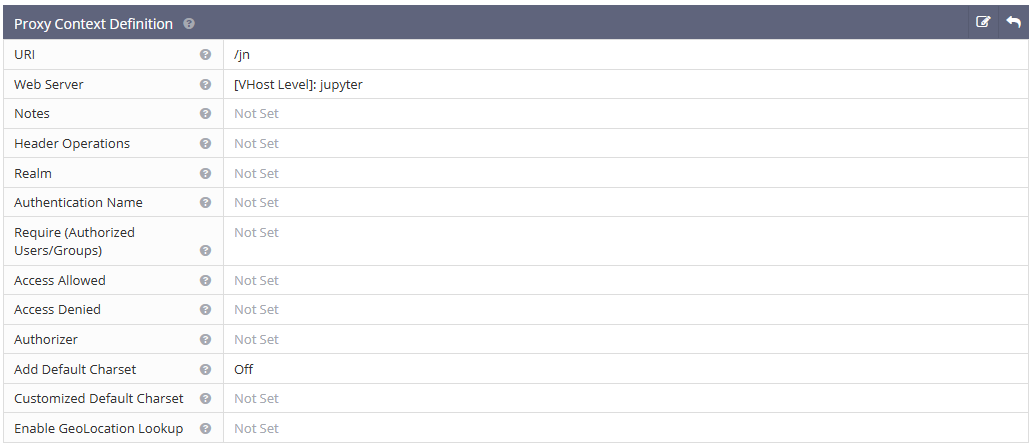Configuring Jupyterlab for VPS
We assume that JupyterLab is already installed.
1. Configure JupyterLab/Hub
-
Generate
jupyter_notebook_config.pyfile:$ jupyter notebook --generate-config -
Edit
jupyter_notebook_config.py
-
Change base_url:
c.NotebookApp.base_url = '/jlab' -
Change allowed hostnames:
c.NotebookApp.local_hostnames = ['localhost', 'hostname.com']
2. Start Jupyter automatically
We’ll start Jupyterlab on port 8888. Change the directories according to your installation.
-
Create script:
vi ~/start-jupyter.shContent:
#!/bin/bash /home/user/miniconda3/envs/jup/bin/jupyter-lab \ --notebook-dir=/home/user \ --port=8888 \ --ContentsManager.allow_hidden=True \ --no-browser -
Add new service:
vi /etc/systemd/system/jupyter.serviceContent:
[Unit] Description=Jupyter Notebook [Service] Type=simple PIDFile=/run/jupyer.pid ExecStart=/home/user/start-jupyter.sh User=user Group=group Restart=always RestartSec=30 [Install] WantedBy=multi-user.target -
Start service
sudo service jupyter enable sudo service jupyter start
3. Configure OpenLiteSpeed (OLS)
No need to use rewrite rules here. Select your site on OpenLiteSpeed panel and add the following:
- External App
- Type:
Web Server - Name:
jupyter - Address:
localhost:8888 - Max Connections:
5
- Type:
- Context
Use the same base_url as above.
- Type:
Proxy - URI:
/jlab - Web Server: select
namefrom step above
- Type:
- Web Socket Proxy.
This is required for the kernel connection.
- URI
/jlab - Address:
localhost:8888
- URI
- Restart OLS
Restart Python process (wsgi)
killall lswsgi
Fix permission issues:
chown -R nobody:nogroup /usr/local/lsws/Example/html/demo
